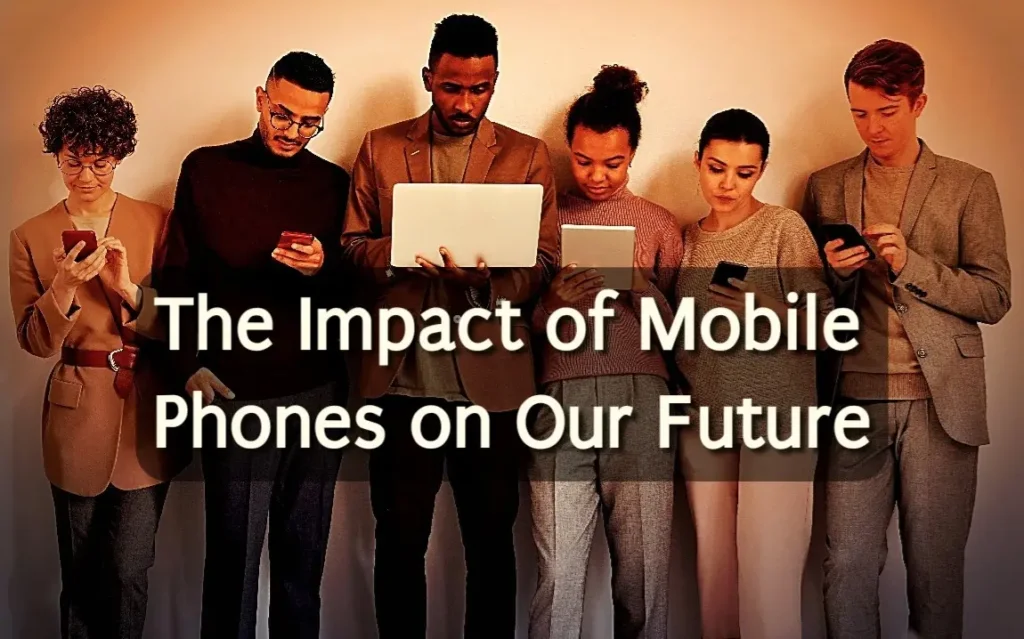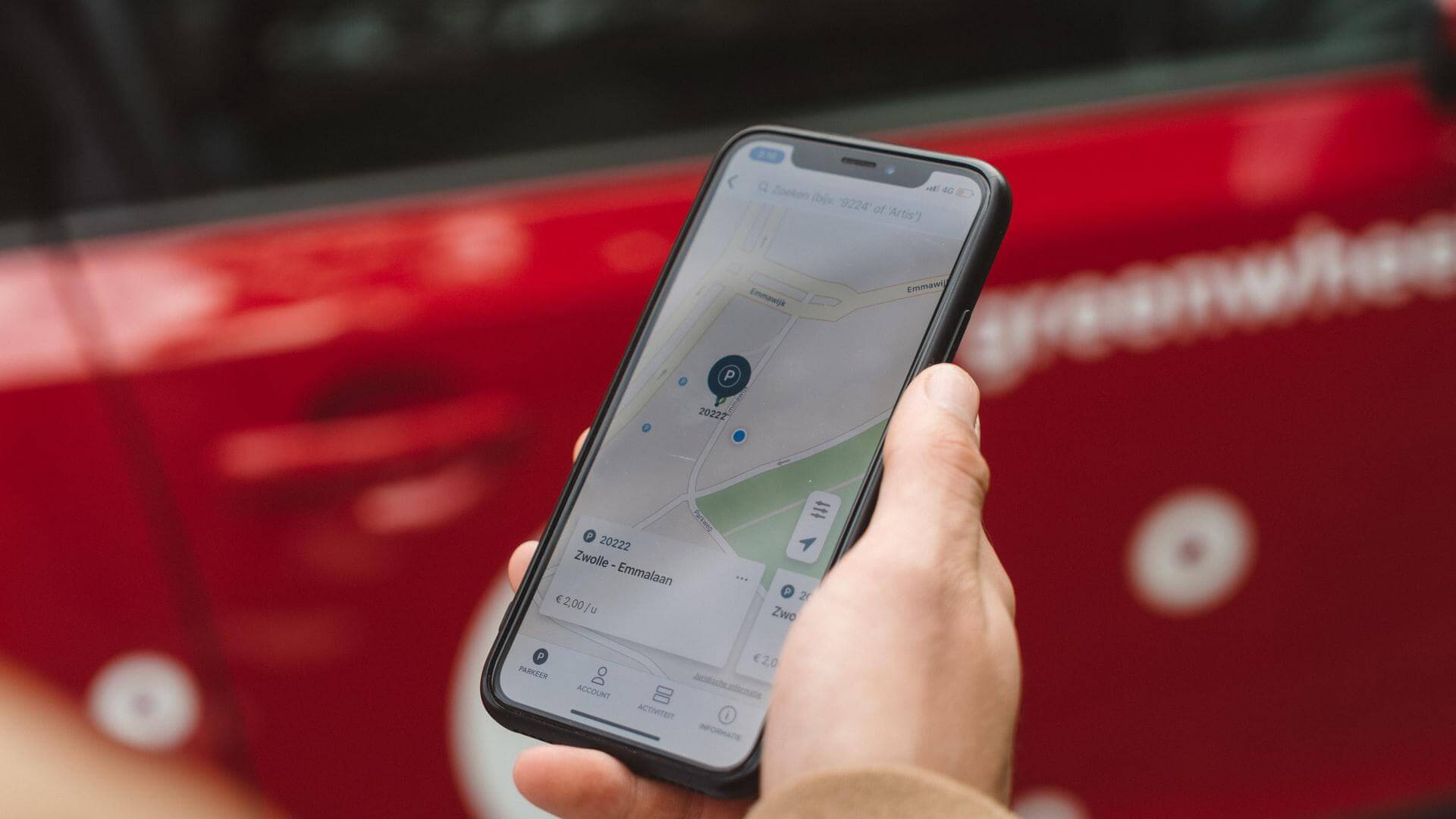Future impact of mobile phones: should we fear or embrace?
This blog post may contain affiliate links. If we find a product or service to be useful, we encourage you to visit the website via that link. If you make a purchase through our referral link, we may receive a commission. Rest assured, you will not be charged any additional fees. By using these links, you can support us while making your purchase. For more information visit here.
As mobile phones become increasingly ubiquitous, their impact on our future is a topic of increasing debate. On the one hand, some fear that the widespread use of mobile phones will make our society increasingly isolated and disconnected. On the other hand, others see the widespread use of mobile phones as an opportunity to increase communication and collaboration. So, which is it? Are mobile phones a force for good or evil?
There is no doubt that mobile phones have become a ubiquitous part of modern life. With their ability to connect to the internet and make calls anywhere, they have become a mainstay for both personal and business communication. While there are some potential dangers to the future posed by mobile phones, the advantages of their widespread adoption likely outweigh the risks.
The impact of mobile phones on our future
One of the biggest advantages of mobile phones is their ability to connect people anywhere in the world. This has led to a dramatic increase in international trade and helped connect people who would have never had the opportunity to meet. Mobile phones have also made it easier for people to stay in touch with friends and family, no matter where they are.
Another advantage of mobile phones is their ability to help people stay informed. People can access news and information from around the world by connecting to the internet. This has helped to promote democracy and freedom in many countries. Mobile phones have also made it easier for people to access essential services, such as healthcare and education.
Despite the many benefits of mobile phones, there are some potential dangers to their future. One of the biggest dangers is the potential for mobile phones to be used for terrorist purposes. Anyone can misuse mobile phones to plan and execute terrorist attacks. With the help of smartphones and apps, it’s easy to spread the wrong propaganda.
Another danger is the potential for mobile phones to be used for cybercrime. Hackers can use mobile phones to steal personal information or hack computer systems.
Despite the potential dangers, the advantages of mobile phones will probably outweigh the risks. Mobile phones have become a vital part of modern life, and their benefits are too many to ignore.

I. The advantages of mobile phones are many and varied.
There are many advantages to owning a mobile phone. Perhaps the most obvious benefit is that you can always stay in touch with friends and family, no matter where you are. Mobile phones also allow you to access the internet, which can help you find directions or look up information.
Additionally, mobile phones provide a number of features that can make your life easier, such as a calculator, a calendar, and a notepad. Finally, owning a mobile phone can make you feel safer, as you can contact emergency services if needed.
A. They allow us to stay connected with others regardless of our location.
There are many reasons why people use social media apps on mobile phones. Some of the most popular reasons are to stay connected with friends and family, to find out about various things, and to stay up-to-date on current events. Social media platforms also allow us to share our thoughts and feelings with others. This helps us feel connected to others, even if we aren’t physically around them.
B. They provide a convenient way to access information.
There are a lot of different ways to access information these days. One of the most convenient is through the use of search engines. With a search engine, you can find information on just about anything in seconds. Another effective way to access information is through the use of social media. Social media lets you connect with people worldwide to share your interests. With mobile phones, you can access information anytime, anywhere.
C. They can help us stay organized.
Mobile phones help us stay on top of our meetings and travel schedule. People use calendars to stay organized and to plan their day, week, or month. With calendars, it’s easy to remember important dates.
D. They can make us more productive.
We’ve all heard the saying, “work smarter, not harder.” And it’s true–working smarter can make us more productive. Technology lets us do this in a number of ways. For example, a task manager can help us keep track of what we need to do and when we need to do it. And using a calendar can help us plan our time more efficiently.
Another way mobile phones can help us be more productive is by allowing us to conduct business from anywhere. With a smartphone and an internet connection, we can work from anywhere. This can be a helpful way to take advantage of downtime. For example, if I’m on a flight and have a couple of hours, I can work on my smartphone.

Technology can also help us be more productive by allowing us to work dynamically with others. For example, with a video call, we can meet with people from all over the world. It can be a convenient way to save time and money. Hence, as you can see, the smartphone will help us to be more productive in many ways. And that can be a great thing for our careers.
II. Mobile phones also pose some potential dangers to the future.
Mobile phones have become increasingly popular in recent years, with people of all ages using them for various purposes. While there are many benefits to using mobile phones, there are also some potential dangers to the future.
One danger is that mobile phones can be used to track people’s movements. This is done by tracking the phone’s location via GPS or other tracking technologies. Governments or other organizations can use this to monitor people’s movements and activities.
Another danger is that people can use mobile phones to spread misinformation. They can spread false information through text messages, social media, or other means. As a result, other people can make grave decisions or behave in ways they would not normally.
Finally, mobile phones can also cause health problems. This is because mobile phones emit radiation, which can harm the body. This radiation can cause cancer and other health problems.
While there are many dangers to using mobile phones, there are also many benefits. It is essential to be aware of the risks and the benefits of using mobile phones so that you can make informed decisions about whether to rely on them.

A. They can be addictive.
There is some evidence to suggest that our mobile phones can make us addicted to checking notifications, which can negatively impact our productivity. A study by energy company Ovo found that people who use their phones for work-related purposes are less productive than those who don’t.
The study found that people who used their phones for work-related purposes were distracted by their devices for an average of 52 minutes each day, compared to just six minutes for those who didn’t rely on their phones for work.
Another study found that people who were regularly interrupted by notifications on their phones were more likely to be stressed and experience anxiety. This is because constantly checking notifications can interrupt our focus and disrupt our workflow. It can also lead to feelings of guilt and self-doubt if we feel like we’re not responding to messages quickly enough.
All of this evidence suggests that if we want to be productive, we should try to keep our phones out of sight and out of reach while working. If we can’t do that, we should at least disable notifications for email, social media, and other apps that can be distracting.
B. It’ll be easy to track our movements.
There are various reasons why someone might want to track someone’s movements. One reason is if you are concerned for that person’s safety and want to be able to find them quickly if something happens.
Another reason is if you are investigating someone and need to know where they have been and what they have been doing. GPS tracking devices can be used to keep tabs on a person’s movements, and there are a number of ways to do this.
One way is to put a GPS tracking device on the person’s car. This will allow you to track their movements wherever they are. You can also use GPS tracking devices to track people’s movements through their phones. There are a number of apps that can do this, and it can be beneficial if you are trying to keep track of someone.
C. They can be used to spy on us.
There are some ways by which our phones can spy on us. One way is that somebody can use our phones to track our location. Yes, our phones do this by sending out a signal that satellites can track. Companies can use this to see where their employees are, and the government to monitor people’s movements.
Another way that our phones can spy on us is by our phones listening to our conversations. Our phones have microphones that can be activated even when the phone is turned off. The government does this to listen to people’s conversations and companies to see what people say about their products.
We have known for some time that the government can use our electronic devices to spy on us. But a new study shows how powerful and widespread this surveillance can be. It’s found that the government can’t only track our phone calls and emails but can also access data from our devices that we thought were private.
For example, a study found that the government can track our location, read our text messages, and access our contact lists. This is even if we’ve deleted that data from our devices. They can also access information from our social media and other online accounts. This data can track our movements and activities and build a detailed profile of our personal lives.

This serves as a stark reminder of the significance of keeping our data secret, as well as the need for strong encryption and other privacy safeguards. We must be careful in defending our internet privacy and insist on our government respecting our right to privacy.
D. Using mobile devices to manipulate our thoughts.
Do you ever get the feeling that you’re being manipulated? Do you feel someone trying to control your thoughts and actions? If so, you’re not alone. Psychopaths are everywhere, and they can be compelling.
Manipulative people rely on a variety of techniques to control others. They may use flattery, threats, guilt, or even violence. They may also use less obvious methods, such as deception or mind games. Whatever the technique, the goal is always the same: to get what they want, no matter the cost.
There is a reason why ads are everywhere. Companies use them to influence our thoughts and persuade us to buy their products. Sometimes, they can even be misleading. We must be careful not to be manipulated by these ads without realizing it. Many people might not realize it, but countless ads target them daily.
One can find these ads on TV, the internet, in magazines, and in public places. They are everywhere because companies want to influence our thoughts and persuade us to buy their products. Sometimes, these ads can even be misleading. However, we don’t have to be controlled by these ads. We must be careful not to be manipulated by these ads without realizing it.

III. Overall, the advantages of mobile phones are likely to outweigh the dangers.
There is no question that mobile phones have become an invaluable part of our lives. They allow us to stay connected with family and friends, check our email, and access the internet. While there are some dangers associated with using mobile phones, the advantages are likely to outweigh the dangers.
One of the biggest advantages of mobile phones is that they allow us to stay connected with our loved ones. With a mobile phone, we can call, text, or email our friends and family whenever we want. This is especially helpful if we travel and want to keep in touch with people at home.
Another advantage of mobile phones is that they allow us to stay connected to the world. With a mobile phone, we can access the internet, check our email, and read the latest news. It is helpful if we want to stay up-to-date on current events or if we need to look up information.
Finally, mobile phones have some other advantages. For example, you can use them to listen to music, watch videos, and play games. Besides taking pictures, they can also record videos. This makes them ideal for documenting special moments or for recording memories.
While there are some dangers associated with mobile phones, the advantages are likely to outweigh the dangers. Mobile phones allow us to stay connected with loved ones, stay connected with the world, and have a lot of fun.
A. They have already had a profound impact on our society and our economy.
The internet of things has already had a profound impact on our society and our economy. It has made us connect and access information much easier via mobile phones. We have been able to make transactions and manage our businesses. As the internet of things continues to evolve, it will probably have an even broader impact on our lives.
B. They are likely only to become more ubiquitous
With technological advances, it is becoming more common for mobile devices to be equipped with artificial intelligence. This trend is likely to continue, with AI becoming even more ubiquitous in the future. There are many applications for AI, and it’s expected to have a significant impact on a variety of industries. Some areas where AI tends to have the biggest impact include healthcare, finance, and manufacturing.

Last opinion
It is no secret that mobile phones have completely changed the way we live our lives. They have become an essential part of our daily routine, allowing us to stay connected with family and friends and work at the touch of a button. But what does the future hold for mobile phones? Will they continue to play a vital role in our lives, or will their impact lessen over time?
There are many opinions on this subject, but one thing is for sure—mobile phones are here to stay. The question is, what impact will they have on our future?
There are those who believe that mobile phones will have a negative impact on our future. They argue that we are becoming too reliant on these devices, and it will lead to a decline in face-to-face interaction. They also believe that mobile phones are causing us to become more disconnected from the world around us and creating a generation of addicts who can’t focus or communicate face-to-face.
So, what is the truth? We should all be aware of the impact of mobile phones on our future. We must decide for ourselves whether we are willing to embrace this technology or fear it.
On the other hand, there are those who believe that mobile phones will have a positive impact on our future. They argue that mobile phones are bringing people closer together and that they are making the world a more connected place. They also believe that mobile phones empower people, allowing them to access information and communicate in ways that were previously not possible.
So, what is the truth? Only time will tell. But one thing is sure–mobile phones are here to stay, and their impact on our future will be significant.
Understanding the importance of copyright law is absolutely vital, as it strictly prohibits any reproduction or replication of works without the explicit permission of the author. Any unauthorized duplication of content will lead to legal action for copyright infringement under Section 14 of the Copyright Act.











